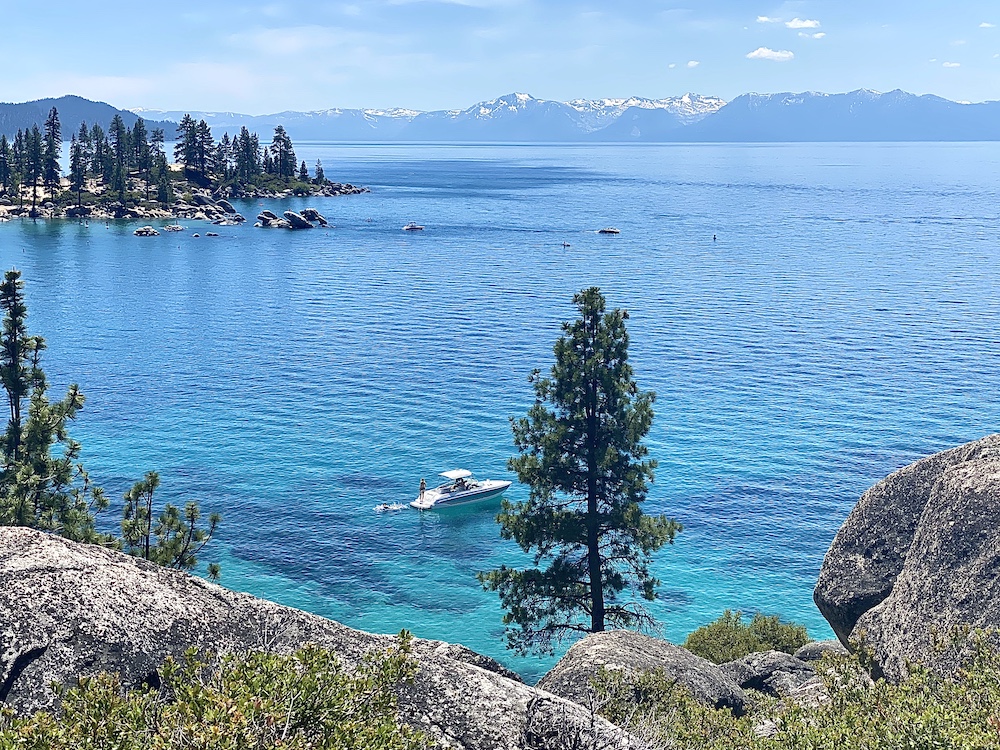After closing on March 27 due to COVID-19, Lake Tahoe opened short-term vacation rentals on June 12 to the general public. In addition to the CDC guidelines, homeowners and rental agencies have put in place new, additional rules in order to ensure the safety of guests as a result of COVID-19.
A list of the general COVID-19 rules put in place by the public health department of Placer County can be found here.
‘Clean’ now means thoroughly sanitized and disinfected
Some of the new rules put in place by the rental agencies themselves involve an abundance of new sanitation procedures, although these procedures vary by rental agency. Generally, cleaners will first use an ultraviolet sanitizing UVC disinfection wand to get rid of the majority of bacteria and viruses. A highly-effective, natural disinfectant called hypochlorous acid is used to clean high-touch surfaces. Finally, cleaning staff must obey over a dozen CDC regulations which include wearing masks, wearing rubber gloves, opening windows to increase air circulation, and regularly washing hands.
New guests can only enter the house one to two full days after the previous renters.
The owner of a local rental agency, Kelly Dietz from Tahoe Luxury Properties, said “We are following strict protocols to ensure our homes are safe and welcoming and that our guests can enjoy their Tahoe vacation stress-free. Our concierge services are available for all guests, so we can arrange private chefs for in-home dining and pre-arrival grocery delivery.”
Julie Weed from West Lake Properties said “when cleaning the rooms, we always follow the CDC guidelines. Furthermore, we always leave 24 hours between when the room is cleaned and when the next guests are allowed to enter.”
Airbnb has their own set of procedures called the Airbnb Enhanced Clean that can be found here.
More flexible cancellation policies
The cancellation policy for rentals is more flexible and some policies enable guests to get full refunds for cancellations. It is also best to cancel with ample notice to maximize the opportunity to get a refund. Minimum stay requirements vary depending on agency and owner, and long-term are still allowed.
Expect contactless check-in as a result of new rules. Families will receive entry instructions to enter their rental home. This will generally be a lockbox with a key, or there will be an keyless electronic entry system.
Restaurants now open — within regulations
Families no longer have to cook all of their meals like they have during quarantine as many restaurants in Tahoe are now open for dine-in seating. There are very strict rules and regulations for this that are posted on the front of all these restaurants. Tables must be 6 feet apart, servers are always wearing masks, and everything is thoroughly disinfected. A list of all the open restaurants and whether or not they are open for dine-in can be found here. Most restaurants are open for takeout if families feel unsafe with dine-in seating.
Outdoor activities abound — with some limitations
There are many outdoor activities with minimal at-risk contact that families can do together up in Tahoe. All National Forest hiking trails are open, although bathrooms are closed. Parks and beaches are open with social distancing, but picnics are discouraged and campgrounds are closed. On the Nevada side of the lake, museums, visitor centers, and gift shops are open at limited capacity. Many bike shops are open for people to rent out bikes. Watersport rentals are available including kayaks, paddleboards, and jet skis.
Homeowner associations provide many activities for families staying in rentals that are in them. Although different homeowner associations will have their own unique rules, they all follow distinct trends. Lake and beach access is usually permitted, but proper distancing is expected. Tennis is open for play, but pools and any indoor activities are all closed. In general, visitors should look deeper into this independently because specific rules vary.
